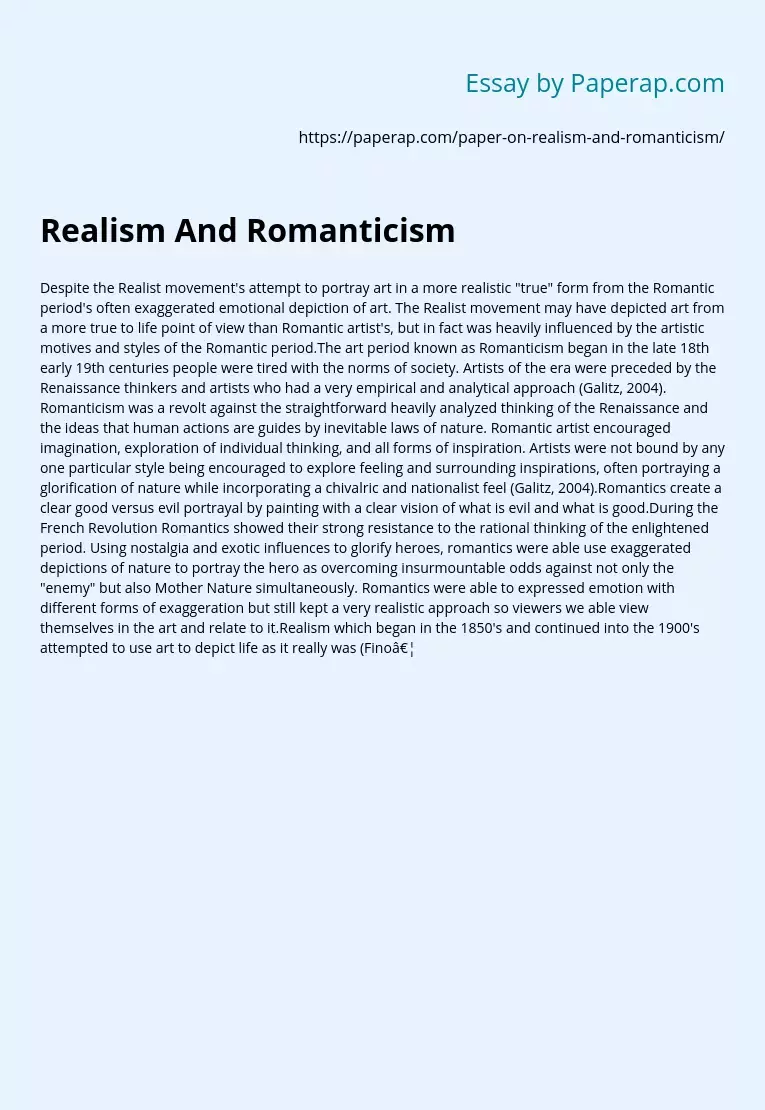Realism And Romanticism
Despite the Realist movement’s attempt to portray art in a more realistic “true” form from the Romantic period’s often exaggerated emotional depiction of art. The Realist movement may have depicted art from a more true to life point of view than Romantic artist’s, but in fact was heavily influenced by the artistic motives and styles of the Romantic period.The art period known as Romanticism began in the late 18th early 19th centuries people were tired with the norms of society.
Artists of the era were preceded by the Renaissance thinkers and artists who had a very empirical and analytical approach (Galitz, 2004). Romanticism was a revolt against the straightforward heavily analyzed thinking of the Renaissance and the ideas that human actions are guides by inevitable laws of nature. Romantic artist encouraged imagination, exploration of individual thinking, and all forms of inspiration. Artists were not bound by any one particular style being encouraged to explore feeling and surrounding inspirations, often portraying a glorification of nature while incorporating a chivalric and nationalist feel (Galitz, 2004).
Romantics create a clear good versus evil portrayal by painting with a clear vision of what is evil and what is good.During the French Revolution Romantics showed their strong resistance to the rational thinking of the enlightened period. Using nostalgia and exotic influences to glorify heroes, romantics were able use exaggerated depictions of nature to portray the hero as overcoming insurmountable odds against not only the “enemy” but also Mother Nature simultaneously. Romantics were able to expressed emotion with different forms of exaggeration but still kept a very realistic approach so viewers we able view themselves in the art and relate to it.
Realism which began in the 1850’s and continued into the 1900’s attempted to use art to depict life as it really was (Fino…
Realism And Romanticism. (2019, Dec 05). Retrieved from https://paperap.com/paper-on-realism-and-romanticism/

